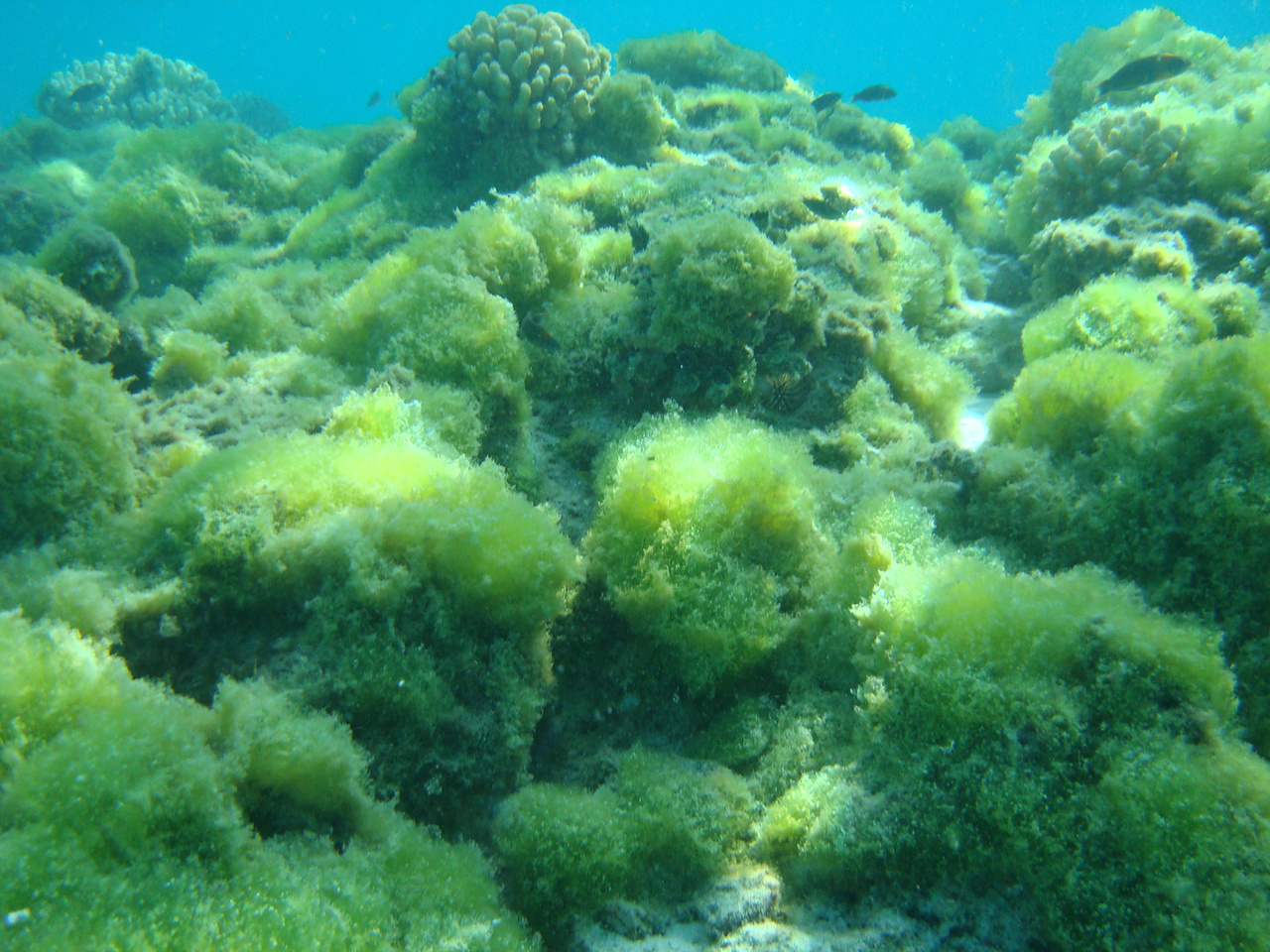Pollution
From the ridge to the reef, pollution from the land (land-based sources of pollution)—runoff, sedimentation, and nutrients—eventually flows to the sea. Elevated underwater cloudiness or turbidity and sedimentation are perhaps the two principal drivers of coral reef degradation worldwide. Turbidity reduces light, which corals need (corals have microscopic algae in their tissues and, like plants, need light to make their own food). Sediments directly deposit and accumulate over the coral surfaces causing partial or total death. Like chronic diseases, excess sediments and turbidity reduce the fitness of individual corals, interfering with vital functions and potentially making corals more susceptible to disease. Land pollution can also cause nutrient loading, in which plant fertilizers or sewage and inadequate wastewater management introduce excessive nitrogen and phosphorus. Excess nutrients promote algal growth, which can smother corals and reduce the amount of dissolved oxygen, and is often associated with an increased amount of bacteria and the death of our coral reefs.
Marine Debris
The marine debris team carefully removes a derelict fishing net from coral reef in the Northwestern Hawaiian Islands, showing the dead corals underneath (Photo: NOAA Fisheries/Steven Gnam).
Coral reefs around small islands and atolls act like a filter or comb to catch marine debris, including derelict fishing nets and gear, from surrounding ocean currents. When entangled on a reef, this marine debris damages corals. It can even grow into the reef structure, smothering the living coral.
Coastal Development
As our population increases so does housing and recreational developments along our waterways. The effects these developments have if left unchecked or unregulated can be a major source of ocean pollution and coral mortality. It is proven that golf courses and resorts along ocean coastlines are a huge contributor of excessive nitrates in our oceans. These nitrates, create nutrient rich water that promotes the growth of harmful algae. The algae smother the coral reefs, blocking the necessary sunshine for symbiotic organisms called zooxanthellae to photosynthesize. These organisms provide a necessary food source and are instrumental in our coral reefs survival.


